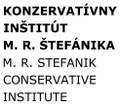
· Should the European Union Have a Constitution?
In March 2002, there was a debate between Daniel Lipšic, a Vice-Chairman of the Christian Democratic Movement, and Radoslav Procházka, an advisor to the Constitutional Court of the SR and an educator at Trnava University, on two topics: firstly, on legitimity of the constitution and the question whether there is an authority entitled to make it legitimate and, secondly, the Charter of Fundamental Rights a draft of which had been elaborated by the European Parliament, European Commission and Council. The debate was chaired by Jaroslav Daniška, a co-worker of the Conservative Institute.
· The EU Enlargement and Atlantic Partnership
Juraj Alner (Pan-European Union) and Ivo Samson (a security policy analyst for the Research Center of the Slovak Foreign Policy Association) presented their views at the seminar chaired by Tomáš Zálešák, a co-worker of the Conservative Institute.
· Tools of Agrarian Policy – Reduction of Corruption Risks
In June 2002 an expert seminar Tools of Agrarian Policy – Reduction of Corruption Risks organised by the Conservative Institute took place in Bratislava. The main task of the seminar was to open a dialogue about corruption on a much wider scale.
Corruption is a side effect of redistribution processes in many fields of the state functions application. Agriculture being a branch for which the state provides a great financial support had not been the object of a special attention as regards corruption principles and lowering of corruption risks before.
· European Union – the View from Slovakia
In October 2002 the conference European Union – the View from Slovakia was held by the Conservative Institute and the Civic Institute (Prague) in Piešťany.
The conference objective was to provide a deeper analysis of present situation in the EU – real problems, challenges and trends. The conference was targeted especially at young people who will influence development of European integration, at experts, representatives of political parties and adjoined youth organisations, journalists and non-governmental organisations.